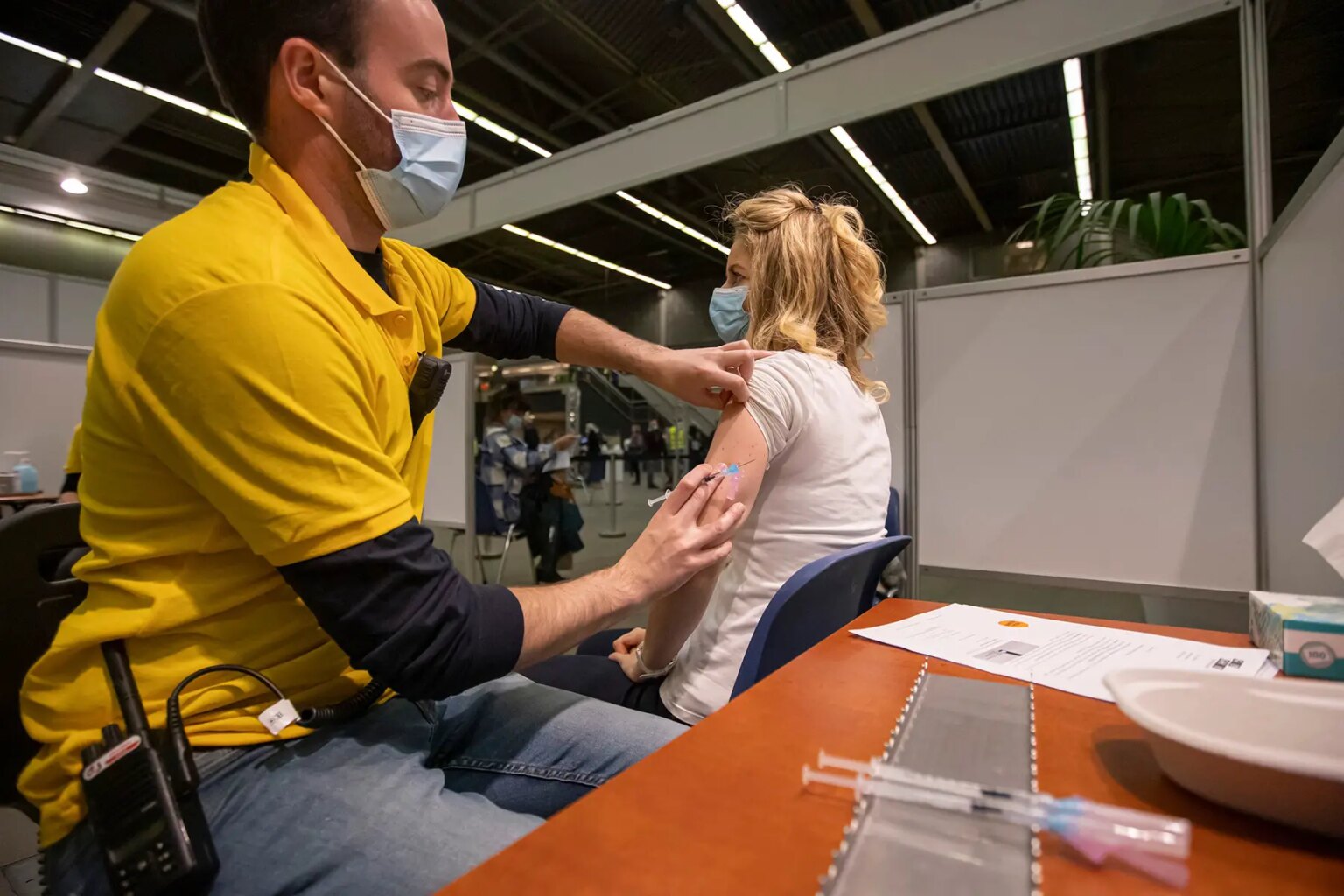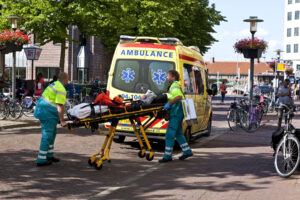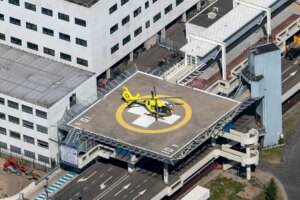Whether you’re looking to protect your child from infectious diseases or are planning to travel to a high-risk country, getting vaccinated in the Netherlands is a simple and affordable process. That said, vaccinating your child can be especially nerve-wracking in a country where you have trouble reading the local language. However, many Dutch government bodies provide a wealth of information in English about vaccinations in the Netherlands.
The Dutch healthcare system provides an extensive list of vaccinations for residents of all ages and health conditions. Child vaccinations in the Netherlands are not compulsory, though an overwhelming majority of parents in the country do vaccinate their children.
This guide explains how vaccinations work in the Netherlands, including information on vaccines for children, seasonal flu shots, travel-related vaccines, as well as a handful of useful online resources.
Cigna Global
Enjoy peace of mind while living in the Netherlands with Cigna Global’s long-term international health insurance plans (12+ months). Get tailored coverage, direct billing with many providers, complex case management, and global care on demand, with access to a network of 1.5+ million doctors, specialists, and therapists.
The Dutch vaccination system
The Netherlands began vaccinating children as a result of a major polio epidemic in 1957. Consequently, a dozen infectious diseases have subsequently been added to the Dutch immunization program for children. Vaccinations are undeniably widespread in the Netherlands, with vaccination rates for many of the diseases in the program exceeding 90%.
The strategy for vaccinations in the Netherlands is managed by the national government. Specifically, the National Institute for Public Health and the Environment (Rijksinstituut voor Volksgezondheid en Milieu, or RIVM for short) is the Dutch government body that oversees the vaccination system in the country. In fact, the National Immunization Program (Rijksvaccinatieprogramma, or RVP for short) protects children from 12 infectious diseases.
Insurance for vaccinations in the Netherlands
For residents of the Netherlands with valid health insurance, vaccinations under the National Immunization Program are free of charge. Other vaccinations (such as a seasonal flu shot or a hepatitis B vaccine) may also be free depending on your overall health or age.
Registration with a health insurance provider is mandatory in the Netherlands and can potentially cover some of the costs related to getting a vaccination, although you may need to explore various coverage options to ensure that all vaccinations are covered. There are quite a few health insurance providers in the Netherlands, such as:
Vaccinations for children in the Netherlands
About four to six weeks prior to your baby’s due date, you will receive an invitation for your child to participate in the National Immunization Program. You will also receive a call-up card for each subsequent vaccination appointment, which you should bring with you to the appointment.
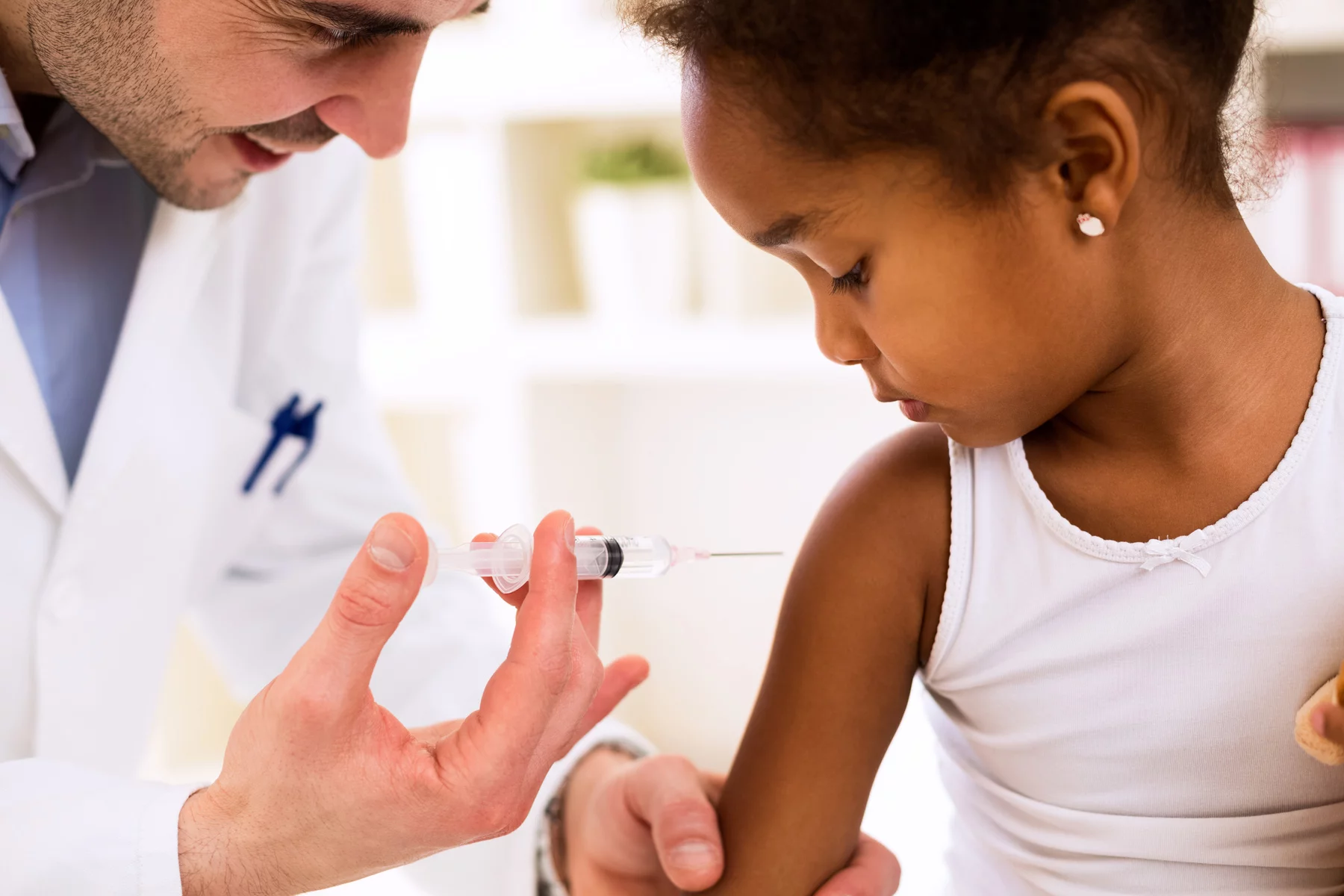
If your children did not start receiving their vaccinations in the Netherlands, however, you can consult with your family doctor about how to bring your child’s vaccinations in-line with the National Immunization Program. Regardless of whether or not your child was participating in the National Immunization Program since they were a baby, child vaccinations in the Netherlands are free.
Recommended vaccinations in the Netherlands
Vaccinations in the Netherlands are not required by law, though more than 95% of families do vaccinate their children. Children living in the Netherlands are, in any case, vaccinated free of charge.
Accordingly, the Dutch immunization program protects against 12 different diseases:
- Diphtheria
- Haemophilus influenzae type b
- Hepatitis B
- Human papillomavirus
- Measles
- Meningococcal disease
- Mumps
- Pertussis (whooping cough)
- Pneumococcal disease
- Polio
- Rubella
- Tetanus
Vaccination schedule in the Netherlands
According to the schedule for the immunization program, vaccines are first given to children during infancy, starting at six–nine weeks of age. Boys receive vaccinations until they are nine years of age; in addition, girls also receive vaccinations to protect against human papillomavirus (HPV). Vaccines are scheduled as follows:
- six–nine weeks: one injection for diphtheria, haemophilus influenzae type b, hepatitis B, pertussis, polio, and tetanus; one injection for pneumococcal disease.
- three months: one injection for diphtheria, haemophilus influenzae type b, hepatitis B, pertussis, polio, and tetanus.
- four months: one injection for diphtheria, haemophilus influenzae type b, hepatitis B, pertussis, polio, and tetanus; one injection for pneumococcal disease.
- 11 months: one injection for diphtheria, haemophilus influenzae type b, hepatitis B, pertussis, polio, and tetanus; one injection for pneumococcal disease.
- 14 months: one injection for mumps, measles, and rubella; one injection for meningococcal disease.
- four years: one injection for diphtheria, hepatitis B, pertussis, and tetanus.
- nine years: one injection for diphtheria, pertussis, and tetanus; one injection for measles, mumps, and rubella.
- 12/13 years (girls only): two injections for human papillomavirus.
By and large, child vaccinations in the Netherlands are similar to those of other European countries, although the vaccination schedules tend to differ. For more information on how the vaccination schedule in the Netherlands compares to other EU countries, consult the European Centre for Disease Prevention and Control’s online tool for vaccine schedules.
Vaccinations for special groups in the Netherlands
Individuals considered to be at a high risk of developing complications from influenza are able to get a free seasonal flu vaccine as long as you fulfill at least one of the criteria. Seasonal flu vaccines are generally provided by a family doctor or a health professional at your place of employment.
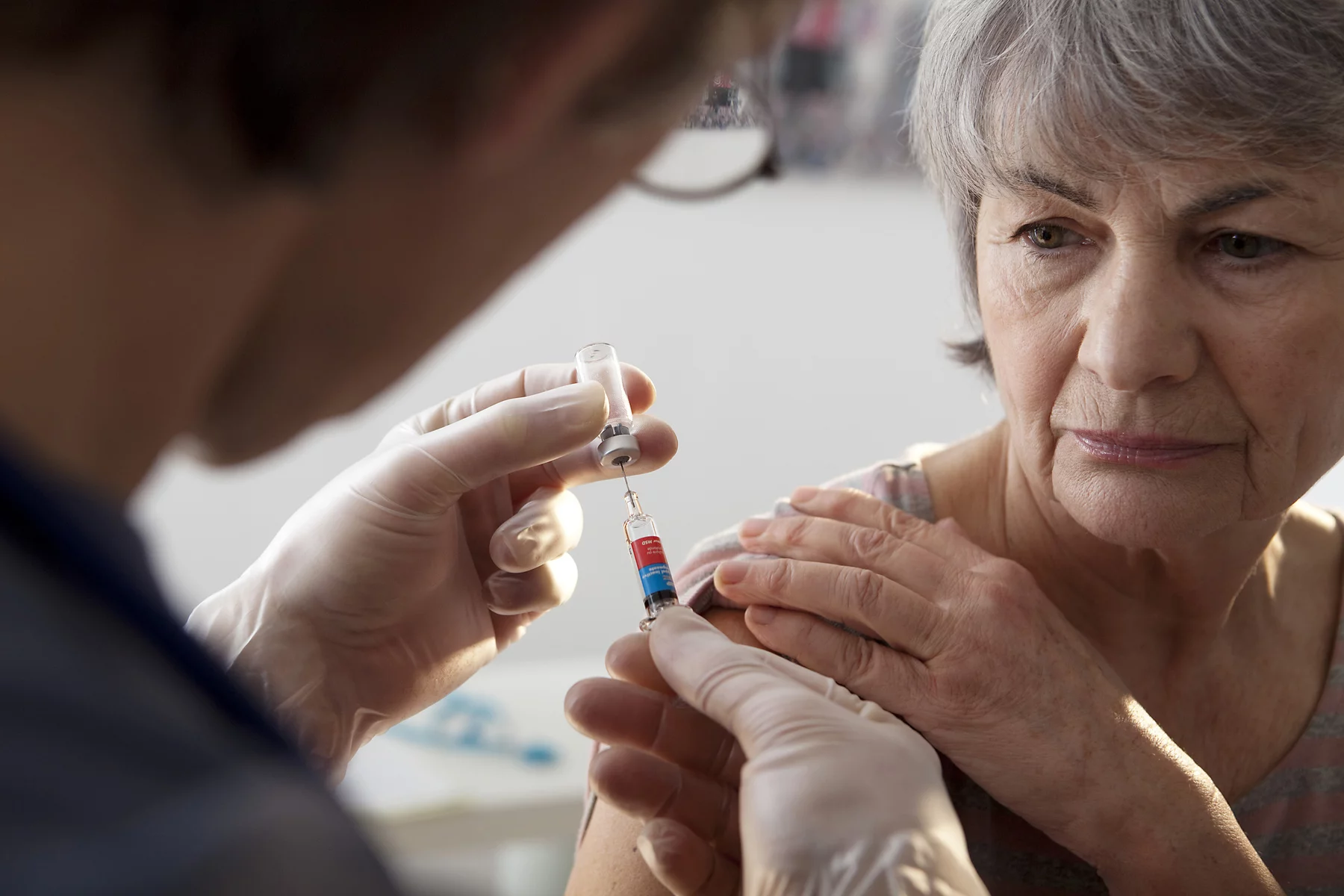
High-risk groups that are eligible for a free seasonal flu vaccine include anyone meeting any of the following conditions:
- 60 years of age or older
- cardiovascular disease
- diabetic
- kidney disease
- lung disease
- weakened immune system
In the event that you don’t fall into one of these categories, you will have to pay for a seasonal flu vaccine in the Netherlands.
Likewise, vaccinations for hepatitis B are also available free of charge for certain high-risk groups. The National Immunization Program ensures that children receive a hepatitis B vaccine, but other groups that are eligible for a free hepatitis B vaccine include:
- children with a mother infected with hepatitis B or parents from a country where hepatitis B is prevalent
- children with Down’s syndrome
- haemophiliacs
- healthcare professionals
- those with a lifestyle that may put them at a greater risk of contracting hepatitis B (e.g., men who have sex with men)
In case you believe that you or your child requires a hepatitis B vaccination, you can book an appointment through your municipal health authority.
Travel vaccinations in the Netherlands
Vaccination requirements for entering the Netherlands may exist depending on your nationality; check with a Dutch embassy or consulate in your area before you travel to the Netherlands to make sure.
The Dutch health service also provides advice and vaccines for those traveling to areas that require them. You can generally consult with your family doctor or the municipal health service for more detailed information regarding your travels.
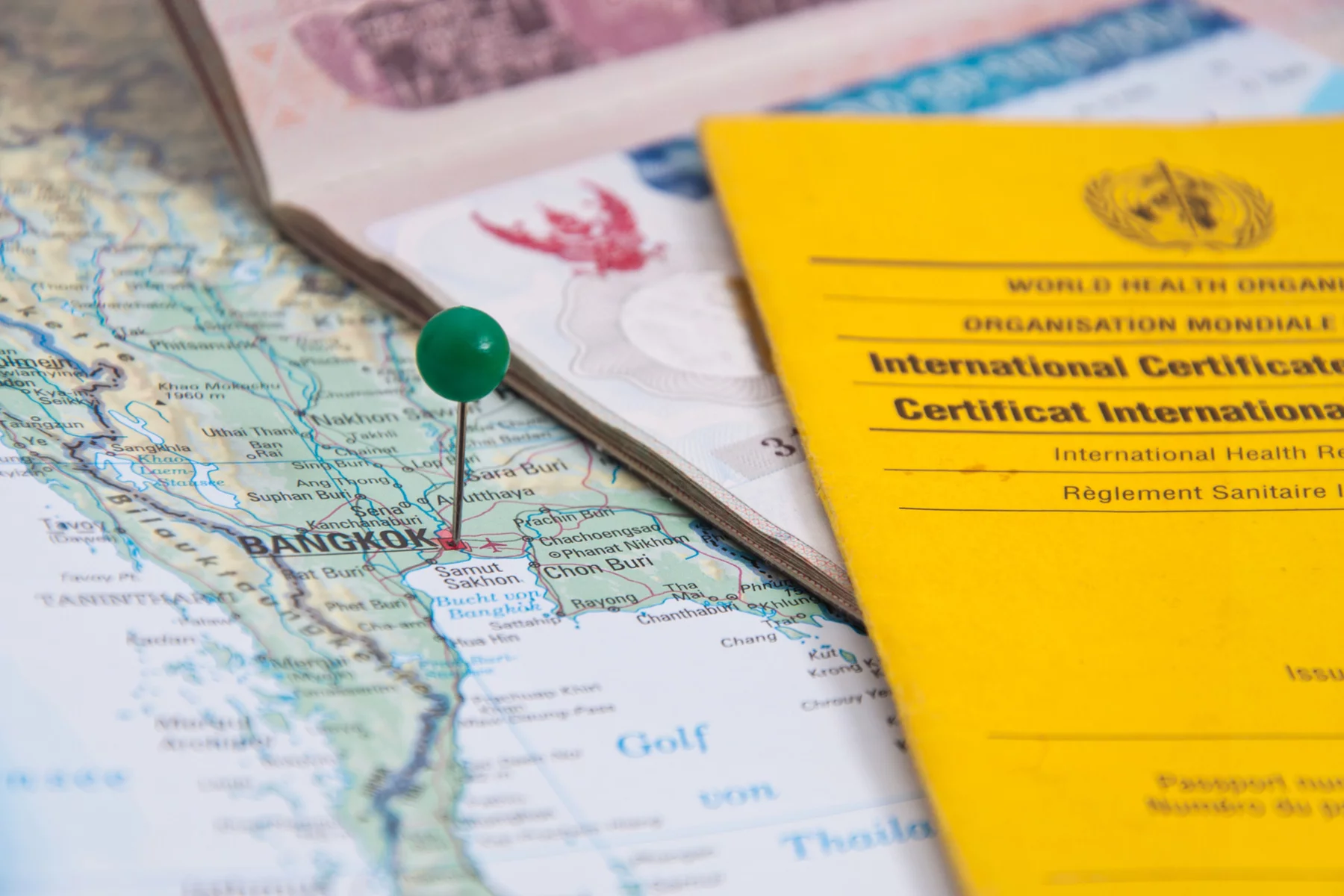
A wide variety of travel vaccines are available in the Netherlands, such as:
- Cholera
- Diphtheria, tetanus, and polio
- Hepatitis A
- Hepatitis B
- Japanese encephalitis
- Meningococcus
- Mumps, measles, and rubella
- Rabies
- Tick encephalitis
- Tuberculosis
- Typhoid
- Yellow fever
In order to help prospective travelers, the National Travel Advice Coordination Center (Landelijk Coördinatiecentrum Reizigersadvisering, or LCR for short) provides a wealth of information, although the information on their website is only available in Dutch. In addition, the LCR maintains a list of locations where you can seek travel advice or get vaccinated.
Travel advice or vaccines related to travel may be covered by your health insurance coverage, although not every health insurance provider does so. Check with your health insurance provider directly to see if travel-related healthcare is covered by your plan.
Useful resources
Do you need more in-depth information about vaccinations in the Netherlands? Various parts of the Dutch government provide extensive information relating to vaccines in English. For more, consult the following resources:
